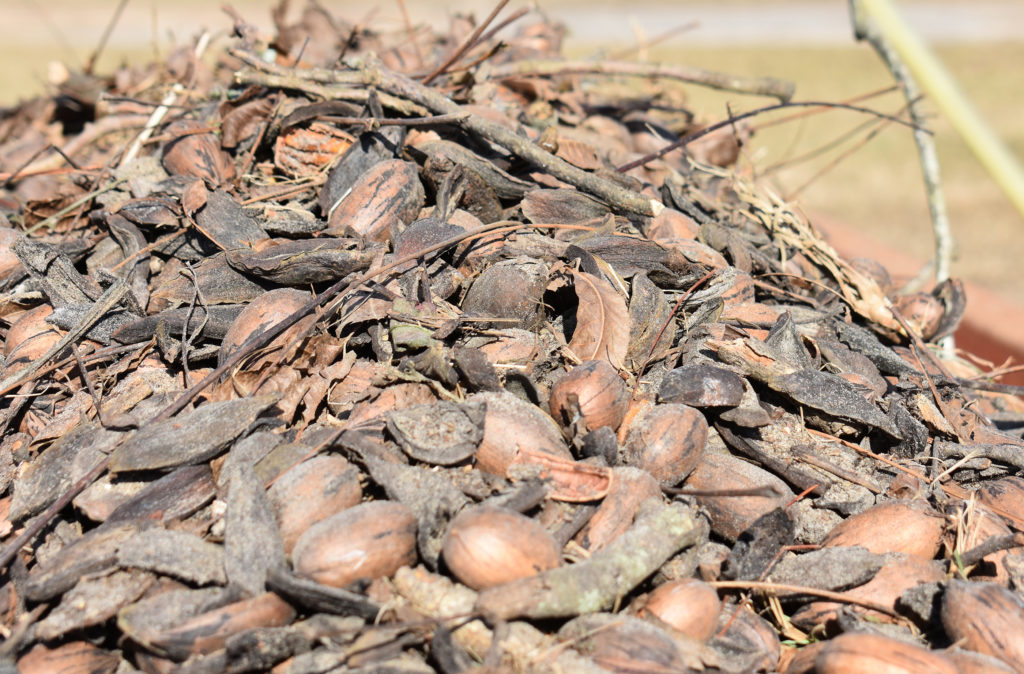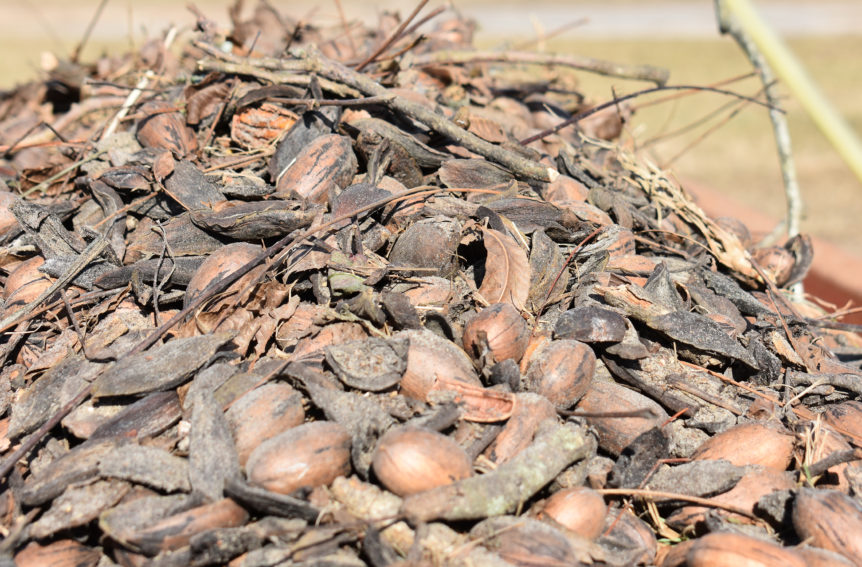
By Clint Thompson
The lingering dry period following Hurricane Helene is impacting pecan production across the Southeast. Lenny Wells, University of Georgia Extension pecan specialist, noted in the UGA Extension Pecan Blog that trees need sufficient soil moisture so shuck split can happen properly.
“The crop load that was there is going to create a significant demand for water. Most growers are really good about watering up until the kernels are filled. After that sometimes, especially after we get a rain, when after kernel filling is complete and the shucks start to open, sometimes growers will think they might be done with irrigation. The crop is done,” Wells said.
“But until those shucks are completely open, providing some water is going to be beneficial. If you cut it off too early, then you start to see problems with shuck opening. If you don’t correct it soon enough and if those temperatures stay hot and dry, then we start to run the risk of seeing some sprouting while the nuts are still on the tree. It can get so bad that we start to see embryo rot there as well.”
“The heavy rainfall (with Hurricane Helene) got the process started, but for many varieties, shuck split has slowed down considerably now that soils have dried out. Don’t be lulled to sleep and forget to turn the irrigation back on so that shuck split can proceed,” Wells wrote in the blog.
Heavy Irrigation Not Required
Pecan producers should also be aware that heavy irrigation is not required.
“You should be able to maintain adequate soil moisture for shuck split with 40% of the full rate. This would be around four hours a day for systems with a 12-hour capacity of 3,600 gallons per acre per day,” Wells added. “Continue irrigating at four hours per day until you are 4 to 5 days away from shaking trees.”










